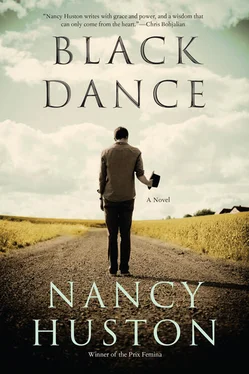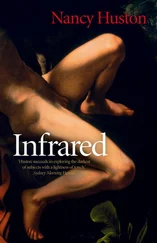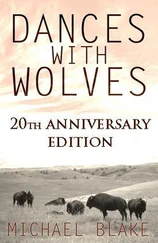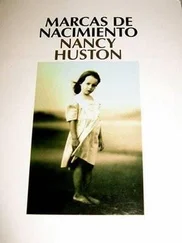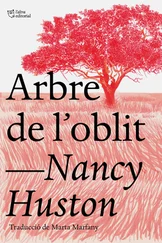As she gracefully lifts her skirts to twirl beneath her cavalier’s raised arm, we see that Marie-Jeanne’s stomach is rounded by the beginnings of a new child. Close-up on their feet, Neil’s now heavily booted and Marie-Jeanne’s sensibly shoed, moving not too clumsily round and round, toeing in and toeing out. Close-up on their faces: Neil’s red-bearded; Marie-Jeanne’s rosy-cheeked and sparkly-eyed.
“ T’es pas vertigineuse?”
“ On dit pas t’es pas vertigineuse, on dit t’as pas le vertige!”
“ T’as pas la faim?”
“ On dit pas t’as pas la faim, on dit t’as pas faim!”
“ T’as pas fatigue?”
“ On dit pas t’as pas fatigue, on dit t’es fatiguée!”
“Oh! I give up. Elle est trop perverse, votre langue.”
“Anyway, I’m neither dizzy nor hungry nor tired. . Just immensely happy. What about you?”
“I’m all right.”
“You worried about Ireland?”
“Yes.”
“Quebec is your country now, Neil. Even if he speaks English, the boy I’m carrying won’t be an Irishman, he’ll be a French Canadian. Are you sure it’s a good idea to read the Irish press all the time? It keeps you from sleeping at night, and in the daytime it keeps you from being where you are, sharing our joys and miseries. We’re your family now!”
“You don’t understand what’s happening over there,” says Neil in a low voice. “My comrades-in-arms are in the front lines. How am I to think of anything else? The IRA shoots eleven master spies from Britain who were following them everywhere, and how do the police respond? By shooting into the crowd at a rugby match! Twelve dead and seventy-two wounded! It’s insane, Marie-Jeanne!”
“I agree completely, it’s an unforgivable sin. The British will have to answer to God for Bloody Sunday. . But as for you, Neil Noirlac, you should stop worrying your head about all that. You’ve been here two years already. . It’s time you cut the umbilical cord between you and your native country!”
NEIL’S MEMORIES OF Bloody Sunday would come back to you, Milo darling, when a similar massacre took place in Brazil in August 1993. On pretext that four cops had been murdered by young drug lords, the Rio police stormed into cafés and private homes in the favela of Vigário Geral, opening fire at random. Twenty-one people were killed, none of whom was connected to the drug world in any way. History repeats itself, horrors rhyme and you, Astuto, were so porous, so sensitive to the tales of others, and yourself so unrooted in a particular time and place that the bloody rebellions and repressions that haunted your bad dreams and black holes could have been unfolding in Dublin, Montreal, or Rio. .
CUT TO A sumptuous panoramic shot of the Mauricie region from on high. The camera will move simultaneously through space and time. Trees sprout leaves that change color, fall off, sprout green again (we’re reminded of one of Awinita’s cartoon fantasies). . Snow falls and melts, animals materialize and vanish. . And in each season we will see Neil — dressed now in heavy winter gear, now in a T-shirt and light trousers, now in a red-and-black- or green-and-black-checkered wool shirt — working with other men, lopping branches off trees, inserting taps into trunks, pouring golden syrup from barrels into bottles, making maple taffy. .
Voice-over: Neil as an old man, talking to his grandson.
It wasn’t easy for me to get used to living here, Milo. It felt uncanny, not to say immoral, to be dealing with moose and maple syrup as my country sank into hell. A month after Bloody Sunday, in December 1920, Westminster passed Lloyd George’s Government of Ireland Act, effectively separating Northern from Southern Ireland. The North said yea, the South said nay, and they’ve never changed their minds since. All through the spring I could think of nothing else. I was desperate to join the Irish Republican Army, now run by Michael Collins and the brilliant, ebullient young Seán MacBride. Remember I told you about Maud Gonne and John MacBride? Well, this was their son. Like myself a few years earlier, he was taking a law degree when politics claimed his soul. At sixteen, he became the youngest lieutenant in the Irish Republican Army. In May, they took over the Customhouse and laid waste to it. Milo, it took my breath away! The Customhouse — the most conspicuous and detested symbol of British power in Ireland, after Dublin Castle — a heap of smoking ruins! The whole British administration paralyzed! Meanwhile Yeats, in London, went on churning out Irish plays and poetry; Joyce, in Paris, went on serially publishing his masterpiece Ulysses ; and I, I, Milo — who had played such an important role in Ireland as lawyer, poet and rebel — what was I doing? Sitting here in Mauricie eating pork ‘n’ beans with Marie-Jeanne’s family. From the outside, an ordinary man among ordinary men. But from the inside: raging, suffering, crippled by my brain in a world of brawn.
Your aunt Marie-Thérèse was born in June. She was a sweet, healthy wee thing; Marie-Jeanne sang and spoke to her in French. In Ireland, North and South were at each other’s throat. My mother wrote to say that she and my father were considering having their assets transferred to banks in Belfast. Yes, even Catholics, now — if they were wealthy and pro-British — were being targeted, terrorized, forced to flee.
Southern Ireland won its independence on Christmas Day, putting an end to seven centuries of British presence. But the minute the terms of the treaty were made public, the Dáil, the Sinn Féin and the IRA split apart and madness set in — that special form of madness known as civil war. Backs were stabbed and guts ripped open as South killed South, son killed father and brother killed brother, not only in Dublin but in the provinces, down to the tiniest of villages. As time went by, people forgot what the issues were; caught up in an unending concatenation of revenge and bitterness and misery, a festival of gore, an orgy of hatred, they simply fought to fight and killed to kill. The army got pushed up into the hills; thousands of men were jailed. Maud Gonne MacBride begged that the prisoners be treated with leniency, instead of which they were summarily shot. Executions are terrible, said the Minister for Home Affairs, but the murder of a nation is more terrible. Yeats, now deeply immersed in a phase of automatic writing with his wife, Georgie, saw symbols everywhere. Convinced that the Christian era was drawing to a close and that we had twenty centuries of undiluted horror in store for us, he wrote “The Second Coming”:
And what rough beast, its hour come round at last
Slouches towards Bethlehem to be born?
Meanwhile the leaves changed color, dropped and sprouted anew, the Saint-Maurice River and Lac des Piles froze and thawed, the sap in the maple trees rose and overflowed, my sweet wife’s breasts and tummy swelled and shrank, our children mewled and spewed and grew. One day I received a letter from my mother. I’m sorry to have to share this with you, Milo, but my history is part of yours and I feel you should know even the worst of it. . Judge Kerrigan being known for his pro-British legal decisions over the years. . our home had been broken into, our china smashed, our paintings slashed, our pillows eviscerated, our garden trampled. . and my younger sister, Dorothy, who happened to be at home alone playing the piano that day, savagely beaten and raped by IRA revolutionaries or whatever they claimed to be. She was lucky to escape with her life. . My family promptly fled to Belfast, a city in which I’d never once set foot.
After reading that letter, Milo, I spent the rest of the day vomiting — just as I had on the boat coming over. I now had no place to go home to.
Читать дальше
